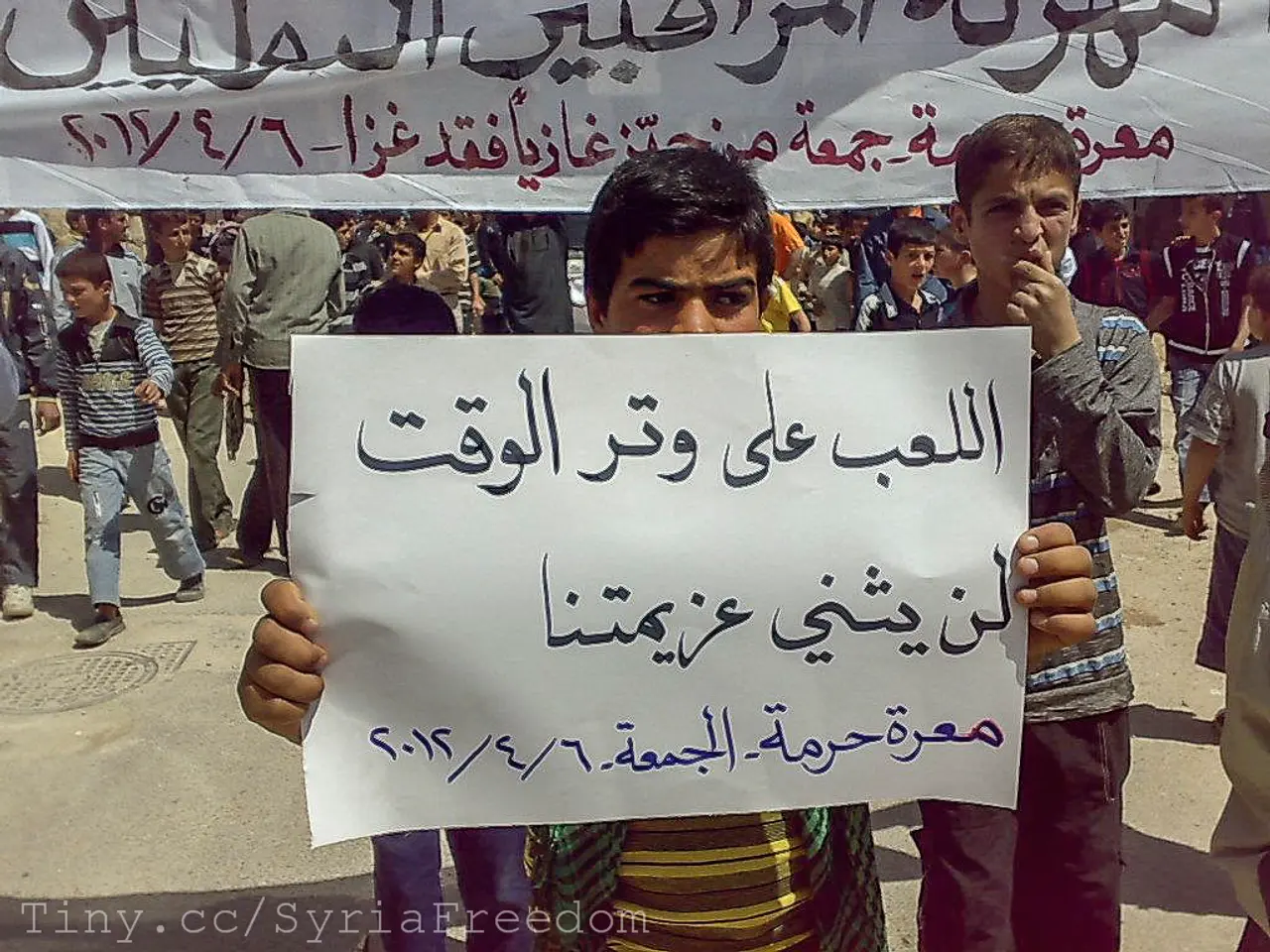Spain Urges EU to Suspend Trade with Israel Over Gaza Crisis: A Delicate Balancing Act
Sánchez urges a halt to EU's association agreement with Israel due to the ongoing crisis in Gaza
Ready to share a straightforward take on the current situation between the EU and Israel? Let's dive into it, keeping it casual and clear.
In what some consider a turning point, Spain's Prime Minister, Pedro Sánchez, has appealed to European partners to temporarily halt the EU-Israel Association Agreement over the dire humanitarian crisis in Gaza. Citing the worsening conditions in the region, Sánchez cautioned that the situation may escalate into a disastrous genocide-like scenario. He based his claims on the European External Action Service's (EEAS) report on the Palestinian territory, presented during a meeting of EU foreign ministers back in June.
The EEAS report suggests that Israel may have violated its human rights obligations, as assessed by independent international institutions. This association agreement, which established the political dialogue between the EU and Israel, dates back to 2000 and emphasizes the respect for human rights and democracy.
Frustrations in the EU have been growing, with countries like France and the Netherlands demanding a reevaluation of the agreement in light of Israel's blockade on aid deliveries to Gaza back in May. Even though international aid organizations have criticized Israel for using hunger as a means to control Palestinians in Gaza, Germany isn't on board with this reevaluation. The EU is now faced with a divisive dilemma: balancing human rights concerns with geopolitical complexities and economic interests.
The conflict between Hamas and Israel, which ignited in October 2023, continues to strain relations and bring attention to the dire situation in Gaza. As the EU grapples with how to proceed, calls for suspending the trade pillar of the association agreement have grown, both from EU member states and human rights organizations. Human Rights Watch, along with over 110 organizations, has urged the EU to suspend the agreement entirely while Israeli atrocities persist, citing obligations under the Genocide Convention to prevent complicity.
However, not all EU members are on board. Germany, for instance, opposes the suspension, making consensus difficult to achieve. Diplomats remain skeptical, with some predicting that no concrete action will be taken until a future meeting in July. As the EU assesses its options, ranging from partial to complete suspension, a clear resolution has yet to be reached. Given the complex nature of this issue, the EU must carefully weigh its diplomatic, economic, and moral responsibilities.
So, what's next for the EU-Israel relationship? Stay tuned as the EU grapples with this delicate balancing act and works towards a peaceful resolution to the continuing Gaza crisis.
Sources: ntv.de, AFP
Additional Insights:
- The European Commission presented a review of the EU-Israel Association Agreement on June 23, 2025. The review indicated "indications" of breaches by Israel but did not propose immediate sanctions[1][4][5].
- The EU's decision to suspend or modify its relationship with Israel over human rights concerns would have significant economic and geopolitical implications[1][2][3].
- On July 20, 2025, EU foreign ministers are expected to discuss the future of the EU-Israel Association Agreement[1][4].
- The international community has called on Israel to lift the blockade of Gaza to alleviate the humanitarian crisis there[1][2][3].
- Achieving a peaceful resolution in the region remains a top priority for the EU, and diplomats are actively engaging in discussions with Israel and key regional players[1][2][3].
[1] ABC News[2] The Guardian[3] Human Rights Watch[4] Al Jazeera[5] United Nations News
In the face of mounting concerns, Spain's Prime Minister, Pedro Sánchez, has advocated for a temporary Arab-Israel Association Agreement suspension due to the worsening humanitarian crisis in Gaza. This call comes amidst international reports suggesting potential violations of human rights obligations by Israel, as well as criticisms towards its blockade on aid deliveries to Gaza. As the EU contemplates its decision, it must strike a delicate balance between addressing human rights concerns, managing geopolitical complexities, and preserving economic interests amidst the ongoing conflict between Hamas and Israel.





